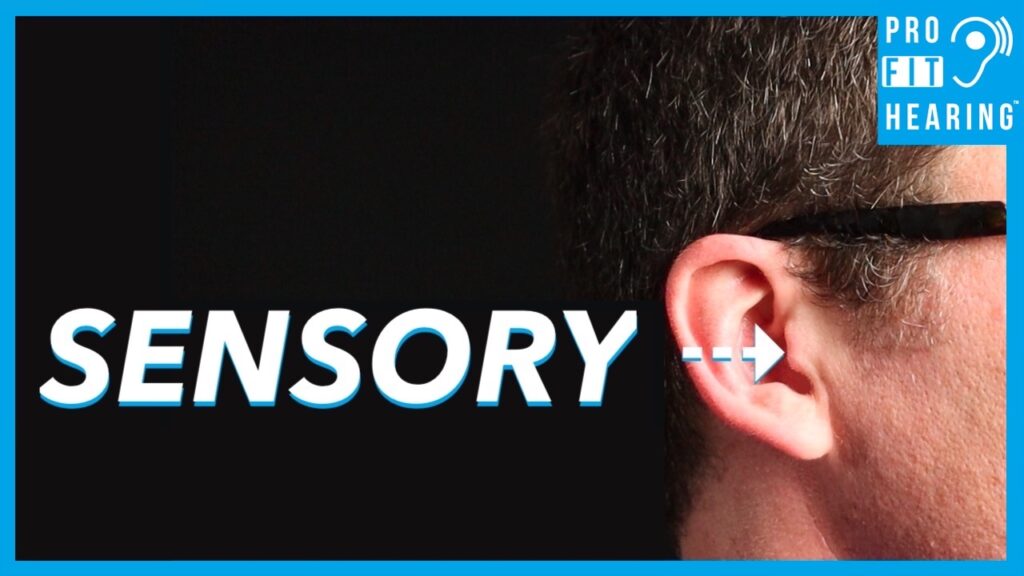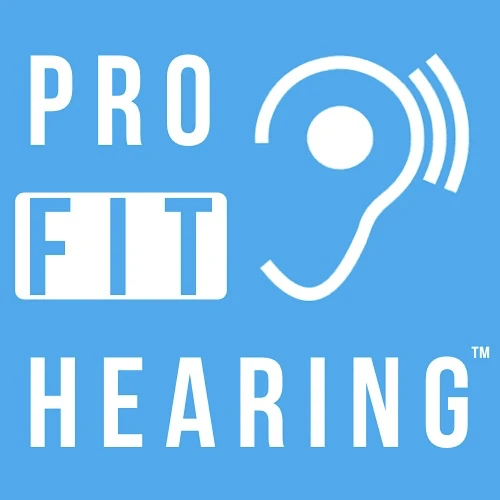Sensorineural Hearing Loss and the Inner Ear

Sensorineural Hearing Loss
Do you know someone with hearing loss? Well, in this video I’m talking about sensorineural hearing loss and the inner ear. Coming up!
Please SUBSCRIBE to our YouTube channel for weekly videos! The video link is at the end of this post.
Hi, I’m Dr. Derek – audiologist, audio engineer, and musician with Pro Fit Hearing.com bringing you the best insight into today’s latest hearing aids and audio technology to improve your life. If you have concerns about your hearing, always consult with your local physician or audiologist.
Welcome to Question of the Day, Friday where I answer your hearing healthcare and audio technology question.
What is sensorineural hearing loss? Today, I’m talking about sensorineural hearing loss and the inner ear.
Parts of the Ear
There are three parts of the ear: the external, middle, and inner ear.
There are also three types of hearing loss: conductive, sensorineural, and mixed.
Sound around us is collected by the external ear, sent down the ear canal to the middle ear (where the eardrum and ear bones are located), and then this sound energy is transferred into the inner ear.
The inner ear includes the cochlea and semicircular canals. The cochlea contains our hearing sensory cells, and the semicircular canals contain our balance sensory cells. The inner ear contains fluid that moves in response to sound. This fluid movement activates our hearing sensory cells (called hair cells) which send signals up the auditory nerve to the brain. Once that signal is received by the auditory cortex in the brain, we perceive sound.
Sensorineural Hearing Loss
Ok, so up to this point I’ve discussed how the ear works normally, but what happens when you have sensorineural hearing loss?
Sensorineural hearing loss occurs in the inner ear and is permanent. It is caused by damage to the hair cells inside the cochlea or by damage to the auditory nerve. Sensorineural hearing loss may be a result of gradual hearing loss due to aging (also known as presbycusis), genetic abnormalities, ototoxic medications, noise exposure, an auditory nerve tumor, illness or disease affecting the inner ear, head trauma, or congenital causes.
Sensorineural hearing loss often appears in the high frequency sounds first. This makes words sound like they’re garbled or reduced in clarity. Hearing aid use is the only way to provide more clarity, but it’s important to know that hearing aids only “aid” our hearing. They can not restore hearing or “fix” hearing loss.
In cases of more severe hearing loss, hearing aids may not provide enough benefit so a cochlear implant can be considered (after a medical evaluation and audiological testing to determine candidacy). Cochlear implants stimulate the auditory nerve with electrical impulses that the brain interprets as sound. This direct connection to the nerve bypasses the damaged part of the ear altogether and sends the signal up to the brain.
Remember, sensorineural hearing loss is permanent. Avoid excessively loud noise and music as this can damage your ears, or use hearing protection when you’re in those loud situations.
Question of the Day
So for today’s question, what one thing did you learn about hearing loss or the ear that surprised you the most? I’d love to know your thoughts, so please comment below. What other video topics do you want to see? Let’s connect in the comments.
Remember to connect with Pro Fit Hearing on social media. Be a part of the Pro Fit Hearing community!
If you’re interested in hearing aids, click HERE for my free ebook “How to Buy Hearing Aids.” Know what to ask your audiologist or hearing aid dispenser so that your hearing aids are easy to use and have all the features you’re looking for.
Remember, Pro Fit Hearing brings you the best insight in today’s latest hearing aids and audio technology to improve your life. If you have concerns about your hearing, always consult with your local physician or audiologist.
-Dr. Derek
